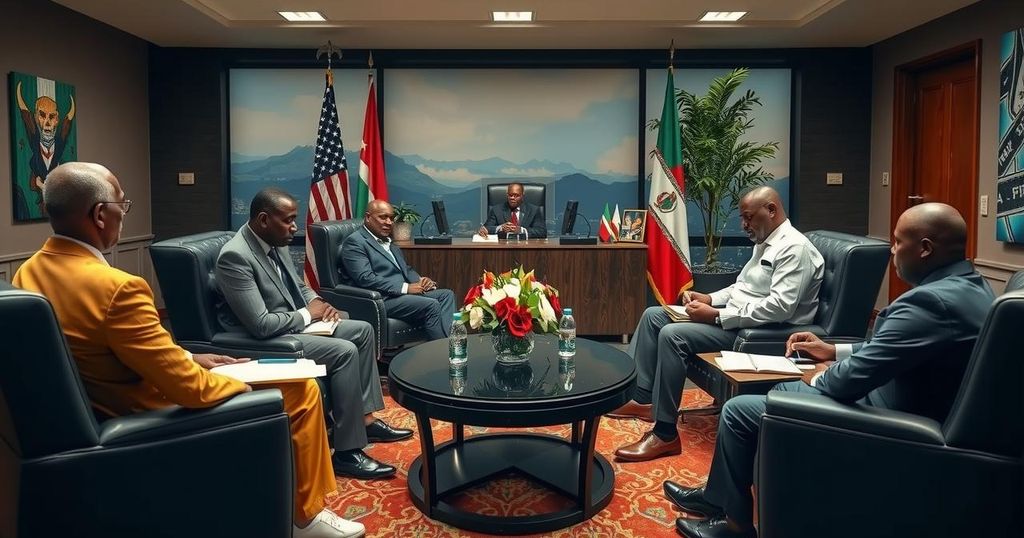South Sudanese factions are set to hold peace talks in Nairobi, starting November 13, 2024, seeking to incorporate groups that did not sign the 2018 peace agreement. Participants include the NAS, SSUF, and R-SPLM. While Kenyan President Ruto supports the dialogue, concerns remain regarding the implementation and funding of existing agreements.
On November 13, 2024, representatives from the South Sudanese government and various dissenting factions are set to convene for a new series of peace negotiations in Nairobi, Kenya. The aim of these discussions is to integrate the factions that have opted not to sign the 2018 peace agreement, which included significant groups such as the National Salvation Front (NAS), led by Pagan Amum, the South Sudan United Front (SSUF) under former army chief Paul Malong, and the Real Sudan People’s Liberation Movement (R-SPLM) headed by Stephen Buay. Key players in the negotiation process will also include the Intergovernmental Authority on Development (IGAD), as stated by diplomatic sources. It is noteworthy that these renewed talks will adhere to the framework of the 2018 agreement and are not intended to replace it. However, concerns regarding the slow implementation of the existing deal and insufficient funding pose serious risks to the integrity of the peace process. Kenyan President William Ruto underscored the importance of these talks, having confirmed the parties’ consensus during his recent visit to Juba, the capital of South Sudan, on the necessity of resuming discussions in Nairobi. The original peace agreement, which was signed in 2018 by President Salva Kiir and opposition leader Riek Machar, was pivotal in concluding years of violent conflict in South Sudan, but ongoing tensions have led several groups to continue their armed opposition against the government.
The context of the upcoming peace talks in Nairobi is rooted in the longstanding conflict that has plagued South Sudan since its independence in 2011. The 2018 peace agreement, reached between key leadership figures, was a critical step towards cessation of hostilities, yet numerous factions remained outside this accord, contributing to ongoing violence and instability. The Intergovernmental Authority on Development (IGAD) appends its support as a regional body aimed at fostering peace and stability in the Horn of Africa, illustrating the international dimension of South Sudan’s internal struggles.
In conclusion, the impending peace talks in Kenya represent a significant opportunity to extend the 2018 peace agreement to include other factions in South Sudan. With a diverse representation including major holdout leaders, the discussions aim to address the complexities of integrating various groups while highlighting challenges such as the implementation of previous agreements and funding. The support from the Kenyan government and IGAD underscores the regional commitment to fostering peace in South Sudan, which is vital for the nation’s future stability.
Original Source: sudantribune.com






